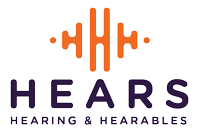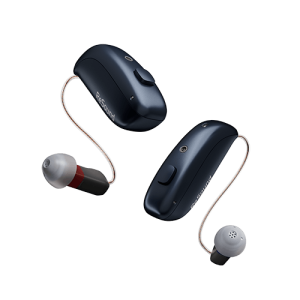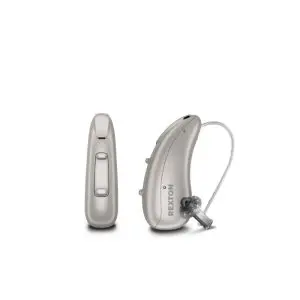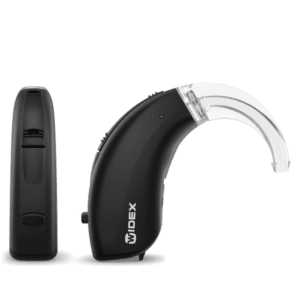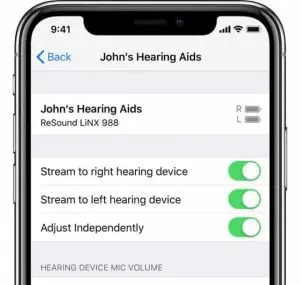More on Alzheimer’s Disease
If you read the first in this series that we posted on our clinic page at Hears to U, Audiology, I wrote about some definitions, differences between Alzheimer’s and dementia, and the ten common signs. Here I want to talk about risk factors and how it is diagnosed.
The exact causes of Alzheimer’s disease are not fully understood
In basic terms, brain proteins fail to function normally, which disrupts the work of brain cells and triggers a series of toxic events. Neurons are damaged, lose connection to each other, and eventually die. Scientists believe that for most people, Alzheimer’s is caused by a combination of genetic, lifestyle, and environmental factors with some co-morbidities like hearing loss.
-
Age:
- The greatest known risk factor for Alzheimer’s. It is not a normal part of aging, but as you grow older the likelihood of developing the disease increases.
-
Family History:
- Your risk of developing Alzheimer’s is somewhat higher if a first-degree relative (parent or sibling) has the disease. Most genetic mechanisms among families remain largely unexplained, and the genetic factors are likely complex.
-
Mild cognitive impairment:
- Defined as a decline in memory or other thinking skills that is greater than normal for a person’s age but does not prevent the person from functioning in work or social environments. When the primary cognitive deficit is memory, the condition is more likely to progress to dementia.
-
Head trauma, poor sleep patterns, and air pollution are some more risk factors.
-
Excessive alcohol consumption:
- Science News on July 14, 2022 published a study that showed that moderate consumption (7 or more large units of alcohol per week) was associated with high levels of iron accumulation in the brain. Higher brain iron in turn linked to poorer cognitive function. Similarly, I n 2021, the Alzheimer’s Assoc of Canada suggests women have no more than two drinks per day (a drink being one 12oz beer, one 5 oz glass of wine, or 1.5 oz of spirit) and men no more than three per day.
-
Shared factors with heart disease:
- Risk factors for heart disease are also risk factors for Alzheimer’s: lack of exercise, obesity, high blood pressure, smoking, high cholesterol, and poorly controlled type 2 diabetes.
-
Decreased social engagement, depression, and hearing loss:
- These three factors often occur together and can be lessened by treating any undiagnosed hearing loss.
To diagnose Alzheimer’s, doctors may use medical history, mental status tests, physical and neurologic exams, and brain imaging. Unfortunately, there is no single diagnostic test for Alzheimer’s.
Let us look at each item
- History: the doctor will ask about diet, nutrition, alcohol use, and review medications.
- Neurologic exam: the doctor will check reflexes, coordination, muscle tone/strength, eye movement, and speech.
- Brain imaging: through the use of MRI or CT the doctor can rule out other conditions that can cause symptoms similar to Alzheimer’s (ex: a brain tumor, strokes, head trauma, etc). These imaging studies can also determine if high levels of beta-amyloid are present. High levels are a hallmark of Alzheimer’s.
- Mental cognitive tests: used to evaluate memory, thinking, and simple problem-solving abilities. Some are brief while others are more complex. A neuropsychologist often gives the more comprehensive tests to evaluate executive function, judgment, attention, and language.
- Hearing loss is not a test to determine if you have Alzheimer’s disease.
Once a diagnosis is made, the disease progresses in three stages: Early, Middle, Late. Some use the terms mild, moderate, and severe.
Early: a person may function independently.
He or she may still drive, work and be part of social activities. Despite this, the person may feel that he or she is having memory lapses, forgetting familiar words or the location of everyday objects. During this stage, the person may live well by taking control of their lives, making lifestyle changes and taking pleasure in long-standing hobbies. If you’re worried in the early stages, you can take steps to help yourself — such as getting glasses or hearing aids to improve your vision and hearing.
Middle: this is typically the longest stage and can last for many years.
As the disease progresses, the person will need greater levels of care. In this stage, the symptoms become more pronounced. The person may confuse words, become frustrated or angry, and behave in unexpected ways. It will become difficult for the person to express thoughts and perform routine tasks without assistance. Try to determine what he or she can do without assistance, and try to simplify tasks if possible. If you know someone in this stage, make sure they are hearing well and that they are not stressing out their brain trying to hear and see better. Our sensory systems are important to take care of for our wellness.
Late: in this stage the symptoms are severe.
People lose the ability to respond to their environment, carry on a conversation, and control movement. As memory and cognitive skills worsen, significant personality changes may occur and extensive care may be required.
I had thought to discuss treatment options, but that topic will need its own summary. This disease is awful, terrifying, and uncomfortable to think about and talk about. However, as with most things, the more uncomfortable the topic feels, the more important it is to talk about it.It is a diagnosis that affects the entire family. There is help available.
We at Hears to U, Audiology in Hopkins Minnesota and Hears Hearing & Hearables, and hearing health care providers have seen many with such a diagnosis. We welcome the conversation to help you and your family. It is important to get comfort and support from care providers around and audiologists are available to do so. We are but one spoke in the wheel to help you and your family keep moving forward. Reach out and ask us questions about your concerns and how we can help.
